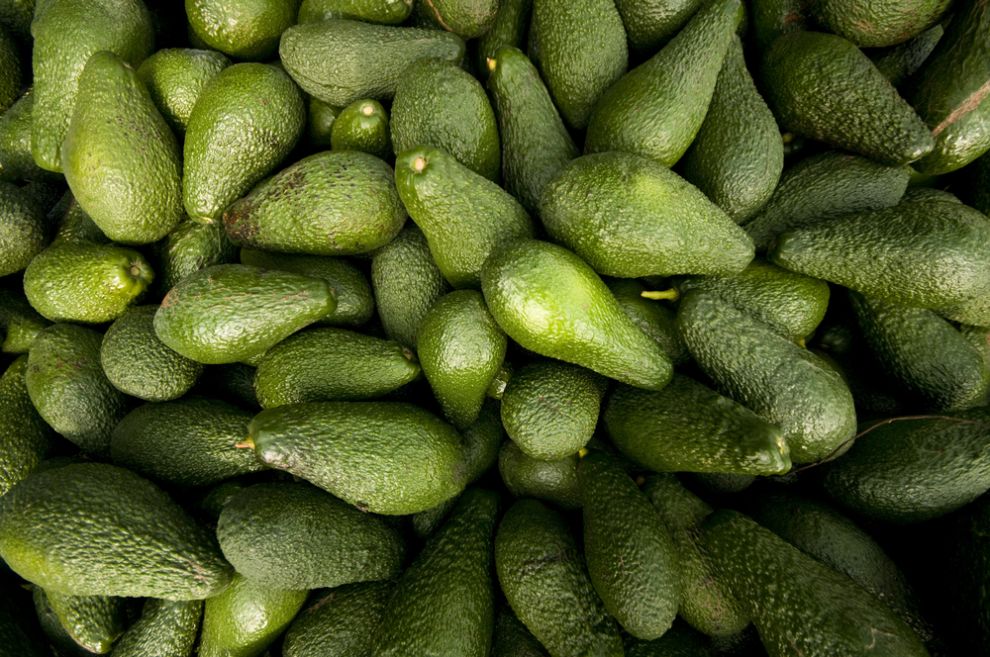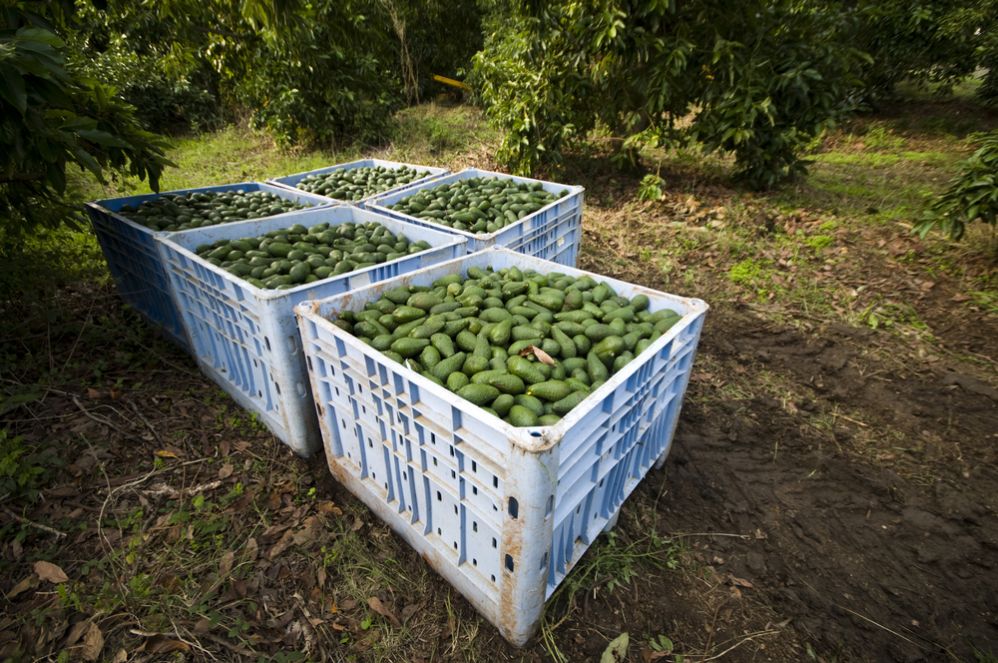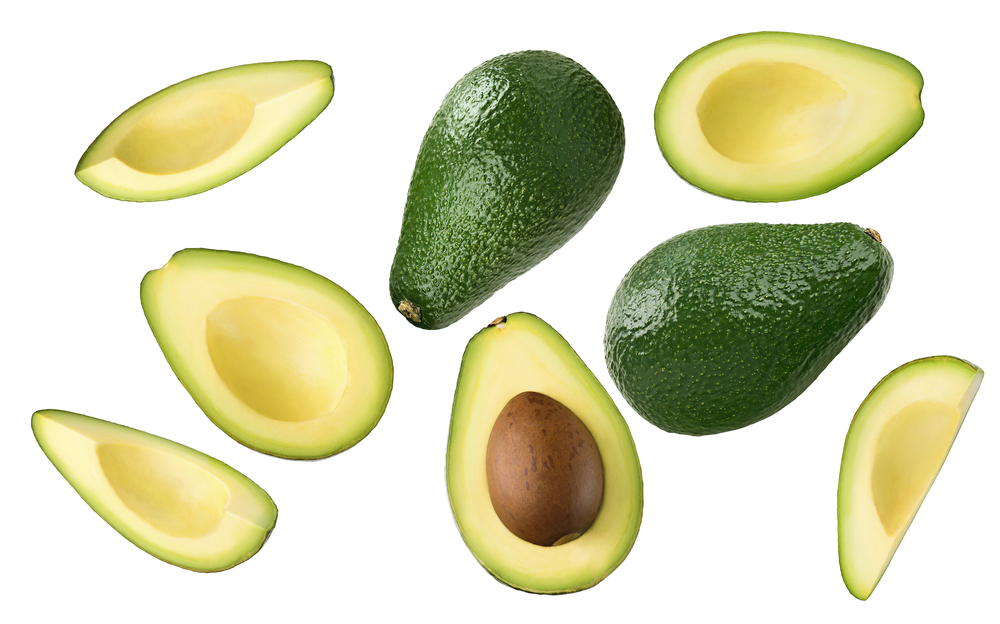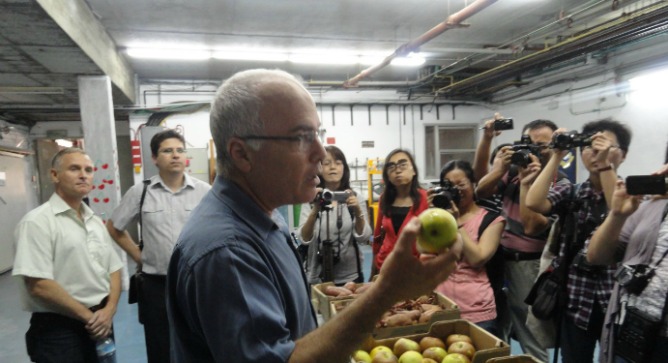The Israeli avocado season is underway, and health-conscientious Europeans are keeping a watchful eye on this super fruit’s journey from orchard to cargo hold to their local grocery store.
High on the lists of global health fads, the avocado is in hot demand. And the Israeli avocado specifically is an extremely popular commodity.
“There is an increase in avocado demand every year. Israeli farmers can’t keep up with the demand,” Itzik Cohen, CEO of the Israel Fruit Growers Association, tells ISRAEL21c. “2016 looks like it will be a very good year for business.”
According to Cohen, Israel exported 60,000 tons of this creamy fruit in 2015. This year, the Israeli Agriculture International portal announced that it expects an avocado yield of almost 100,000 tons of fruit. Of that, 70 percent will be earmarked for export.
Because avocados can grow in a wide range of soil, orchards stretch from the coastal plain to the Jordan Valley and Upper Galilee.
“Every fruit grows with a different flavor in each country. Apples taste different depending on where they’re grown. The same happens with avocados,” says Cohen. “People like the Israeli varieties of avocados so they must have a very good taste.”
Israeli avocados are exported to France, the UK, Germany, the Netherlands, Scandinavian countries and Russia.
“The Israeli avocado has an important share of the European market and the country’s geographic proximity constitutes an important advantage. The fruit can be transported by sea cargo in refrigerated containers. It takes four to five days for the fruit sent by ship in refrigerated containers to reach the market in Europe, whereas it takes between 10 days and two weeks for the competitors’ produce to reach the same markets,” says Reuven Dor, coordinator for the Avocado Section of the Plants Production and Marketing Board.
GMO-free breeding
Israeli horticulturists and researchers are known for developing better-looking, better-tasting, disease-resistant and more nutritious strains of numerous fruits and vegetables.
“Israeli growers are known for their high productivity all over the world; the yield is increasing all the time,” Volcani Agricultural Research Organization researcher Vered Irihimovitch, of the Fruit Tree Sciences Department, tells ISRAEL21c.
At the government-funded Volcani Institute, Irihimovitch is leading a team of researchers in breeding and selecting new avocado cultivars; increasing kinds of avocado; working to improve the fruit’s yields using innovative agro-tech methods; and seeking better ripening methods.

The main varieties of avocado grown in Israel for export are Ettinger, Hass (black-skinned), Fuerte, Pinkerton and Reed. A few other varieties are grown for the local market only, such as the newly patented Galil.
“The Galil variety is of interest because it can be harvested early,” says Irihimovitch of the buttery, light-yellow fruit with a green skin. “People in Israel can buy it in August. The downside is that it has a short shelf life.”
Two other cultivars patented and recently planted in commercial orchards in Israel are the Hass-like Naor and Lavi varieties of avocados, soon to be marketed locally.
“Each variety of avocado has its own characteristics,” says Irihimovitch. “The Lavi has a very good taste and a large fruit size. Its skin becomes black when it is ripe. But it only bears fruit after five or six years. The Naor is an even larger fruit size. It does well in early productivity. And the Moti is a green cultivar, very tasty and similar in shape and form to the Ettinger. The harvest season is relatively late – January to April — so for Israeli consumers this is really appealing.”

And while the controversy over genetically modified produce continues to rage in the Western world, Volcani breeding programs for any fruit going to market are GMO-free by law.
“We’re doing classical breeding of selecting seeds from interesting types of fruits, planting them in the field, and testing each tree at maturity to evaluate the characteristics,” says Irihimovitch. “In this case, it’s old-school science trying to find a Hass-like cultivar that will enable us to harvest in October, November.”
Health benefits of avocado
Like the pomegranate, the avocado is packed with antioxidants and vitamins as well as healthful monounsaturated and polyunsaturated fat.
“It’s a great fruit. It contains fats that are healthy and help your body absorb nutrients and vitamins from other foods,” Yael Inbar, a health and nutrition coach in Tel Aviv, tells ISRAEL21c. “It is packed with vitamin B and E, minerals such as potassium and magnesium, anti-oxidants and fiber.”
Studies have shown that this pear-shaped, nutrient-dense fruit is a good source of lutein (protects against eye disease), fiber (helps the digestive system), folate (lowers risk of heart disease), and oleic acid (reduces cholesterol).
Inbar says avocados are also a great introduction to a healthy lifestyle for children.
“Because avocados are so tasty, kids like them. Instead of giving them vitamin supplements, add avocado to their meals – as a spread on bread or in a salad. When kids like to eat avocado, it’s a win-win situation. Just talking about avocados makes me want to eat one.”















